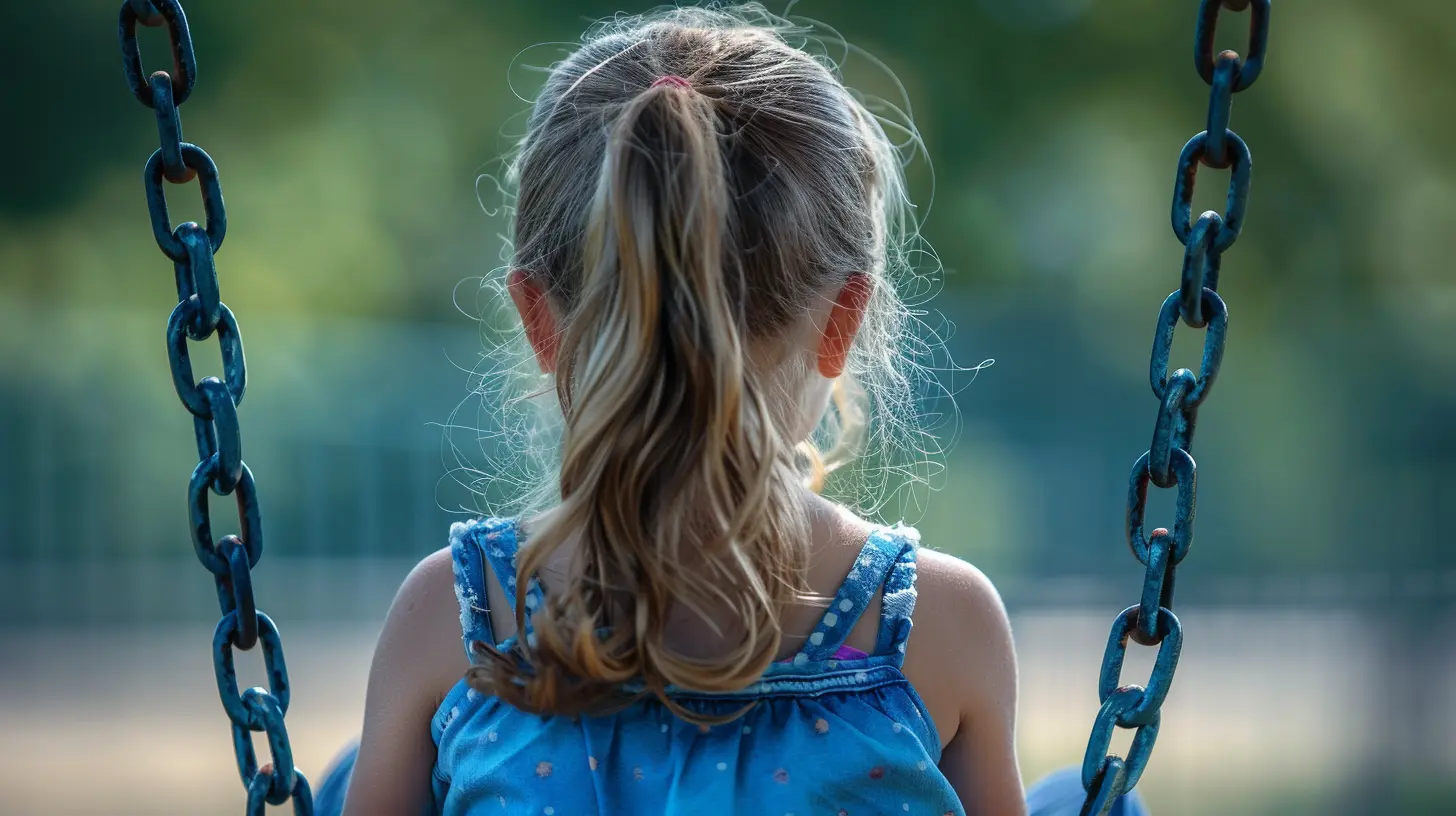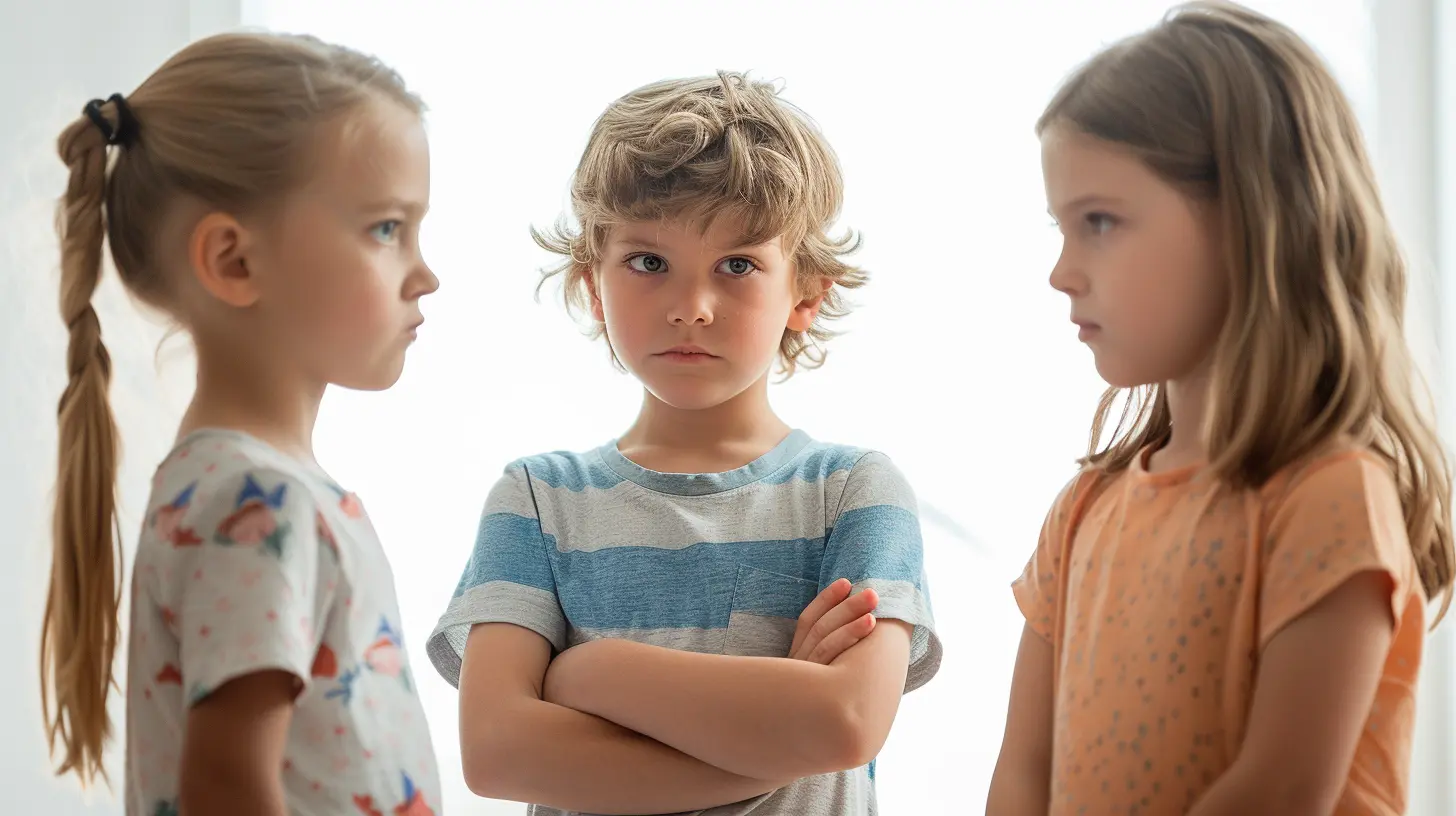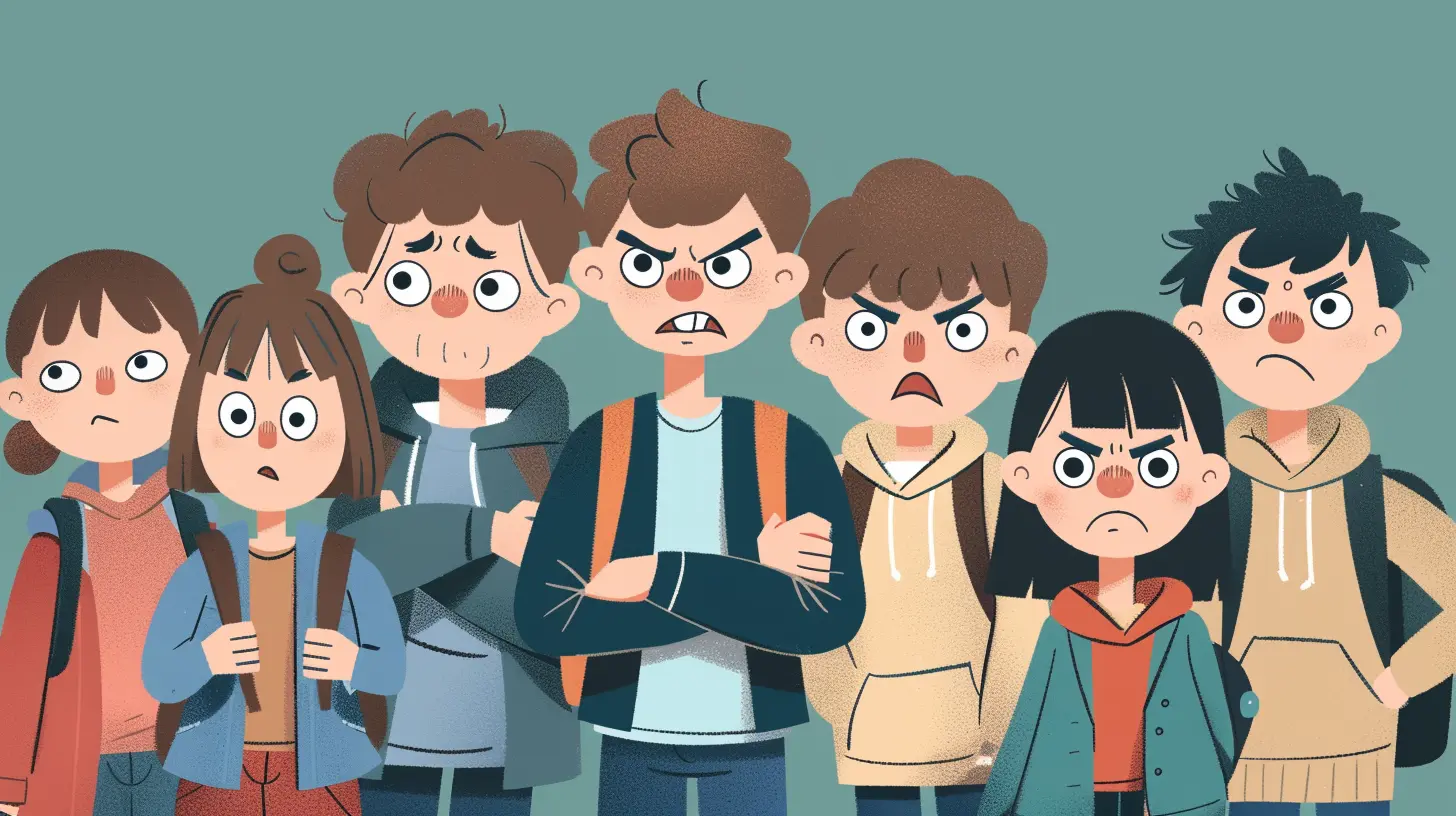How to Help Your Child Manage Peer Pressure
13 April 2025
Peer pressure is something every child will encounter at some point in their life. Whether it's at school, on the playground, or even in online settings, the influence of peers can have a significant impact on your child's behavior, self-esteem, and decision-making. As parents, it's natural to want to protect our children and help them navigate these tricky situations. But how do you do that without coming off as overbearing or out of touch?
In this guide, we’ll dive deep into understanding peer pressure, how it affects kids, and practical steps you can take to help your child manage it. By the end, you’ll feel more confident in supporting your child through the ups and downs of peer influence.
What is Peer Pressure?
Before we jump into the solutions, it's essential to understand what peer pressure actually is. In simple terms, peer pressure is the influence that peers (friends, classmates, or other people of similar age) can have on an individual. This pressure can be either positive or negative.- Positive Peer Pressure: This happens when peers encourage your child to make healthy or constructive choices. For instance, a friend persuading your child to join a sports team or study for an exam.
- Negative Peer Pressure: This is when peers push your child toward harmful or risky behavior, such as smoking, skipping school, or engaging in bullying.
Why Does Peer Pressure Happen?
Kids, especially teenagers, want to feel like they belong. They’re figuring out who they are and where they fit in socially. Often, the desire to fit in or be liked leads them to conform to the norms or behaviors of their peer group, even when those behaviors go against their own values or beliefs.Think about it this way: Imagine being in a room full of people who are all doing something you wouldn’t normally do. The longer you stay in that room, the harder it becomes to resist joining in. That’s peer pressure in action.
The Effects of Peer Pressure on Your Child
Peer pressure can have both short-term and long-term effects on your child, depending on how they handle it. Some effects include:1. Self-Esteem Issues
When children give in to peer pressure, they may start to feel bad about themselves. They might feel ashamed for doing something they know is wrong, or they may feel weak for not standing up for their values.2. Risky Behavior
Negative peer pressure can lead to risky behaviors, such as experimenting with drugs, alcohol, or engaging in unsafe activities. These behaviors can have long-term consequences on your child’s health and well-being.3. Academic Performance
If your child is pressured into skipping classes or not doing their homework to fit in with a certain group, their academic performance will suffer. Over time, this can lead to missed opportunities and reduced self-confidence.4. Mental Health Struggles
Constantly trying to fit in or please others can take a toll on your child’s mental health. They may experience anxiety, depression, or stress as they struggle to balance who they are with who their peers want them to be.
Signs Your Child May Be Struggling with Peer Pressure
As a parent, it’s important to recognize the signs that your child may be dealing with peer pressure. Keep an eye out for these red flags:- Sudden Changes in Behavior: Is your once outgoing child suddenly withdrawn? Or is your usually calm kid acting out? These shifts could be a result of peer influence.
- New Friend Groups: A sudden change in friends, especially if the new group seems to have different values or engage in risky behaviors, can be a sign of peer pressure.
- Avoiding You: If your child starts to avoid family time or becomes secretive, it could be because they’re struggling with decisions influenced by peers.
- Drop in Grades: A sudden decline in school performance may indicate that your child is getting involved in activities that aren’t supporting their academic success.
How to Help Your Child Manage Peer Pressure
Now that you understand the impact of peer pressure, let’s talk about what you can do to help your child navigate and resist negative influences.1. Open the Lines of Communication
This is probably the most important step. If your child feels like they can talk to you without fear of being judged or punished, they’re more likely to come to you when they’re facing peer pressure. Create a safe space where your child feels comfortable sharing their thoughts and feelings.- How to Do It: Instead of asking “Did you get into trouble today?” try saying “How was your day? Anything interesting happen?” This opens the door for conversation without putting them on the defensive.
2. Teach Them to Say No
It may sound simple, but many children (and even adults, for that matter) struggle with saying “no” when they’re under pressure. Roleplay scenarios with them where they might need to say no. Help them practice standing their ground in a calm and assertive manner.- Example: If a peer pressures them to try smoking, they could say, “No thanks, I’m not into that.” Encourage them to be firm but polite.
3. Help Them Choose Good Friends
Not all peers are bad influences. In fact, surrounding themselves with positive, supportive friends can make all the difference. Talk to your child about the importance of choosing friends who respect their boundaries and make good choices.- Tip: Encourage your child to participate in activities or clubs where they can meet like-minded peers. Whether it’s sports, drama, or academic clubs—these environments are great for fostering positive relationships.
4. Build Their Confidence
Children who are confident in themselves and their decisions are less likely to be swayed by peer pressure. Make it a priority to boost your child’s self-esteem by praising their efforts, strengths, and individuality.- How to Do It: Instead of only focusing on achievements (like good grades), praise your child’s kindness, creativity, or persistence. The more they value themselves, the less likely they’ll feel the need to conform to negative peer influences.
5. Teach Critical Thinking
Peer pressure often works because kids don’t take the time to think about the consequences of their actions. Encourage your child to think critically about the choices they make. Ask them questions like, “What do you think will happen if you do that?” or “How will you feel about this decision tomorrow?”- Analogy: Think of critical thinking like a flashlight. When you shine it on a problem, you can see all the possible outcomes, both good and bad.
6. Encourage Independence
As much as we want to protect our kids, it’s important to give them room to make their own decisions. The more independent they are, the more confident they’ll feel in resisting peer pressure.- How to Do It: Give your child opportunities to make choices, whether it’s deciding what to wear, choosing an extracurricular activity, or planning their weekend. The more practice they get, the better they’ll be at making sound decisions when faced with peer pressure.
7. Be a Role Model
Children often model their behavior after their parents, whether we realize it or not. If you handle peer pressure in a healthy way, your child is likely to do the same. Show them how you make decisions based on your values, even when others are pressuring you to do something different.- Example: If a friend tries to persuade you to do something you’re not comfortable with, explain to your child why you chose to say no and how you felt after standing your ground.
When to Seek Professional Help
Sometimes, peer pressure can become overwhelming, and despite your best efforts, your child may continue to struggle. If you notice prolonged signs of stress, anxiety, or depression, it may be time to seek the help of a counselor or therapist. These professionals can provide your child with additional tools and strategies to build resilience and cope with peer pressure in a healthy way.Final Thoughts
Peer pressure is an inevitable part of growing up, but it doesn’t have to derail your child’s development. By fostering open communication, building their confidence, and helping them develop critical thinking skills, you can equip your child to handle peer pressure with confidence and grace. Remember, as a parent, you are your child’s greatest ally—so be there for them, guide them, and most importantly, trust them.all images in this post were generated using AI tools
Category:
ParentingAuthor:

Jenna Richardson
Discussion
rate this article
4 comments
Briar Cross
Great insights on supporting children through peer pressure! Encouraging open communication and fostering self-esteem are essential. It's vital for parents to help kids develop critical thinking skills, so they can make confident choices. Empowering them now will build resilience for future challenges. Thank you for sharing!
May 18, 2025 at 3:39 PM

Jenna Richardson
Thank you for your thoughtful comment! I completely agree—open communication, self-esteem, and critical thinking are key to helping children navigate peer pressure successfully. Your insights are much appreciated!
Flora Diaz
What a wonderful article! Helping our kids navigate peer pressure is so important for their growth and confidence. Your tips are insightful and practical, making it easier for parents to empower their children. Let’s cheer them on as they embrace their uniqueness and make positive choices together! 🌟
May 4, 2025 at 3:43 AM

Jenna Richardson
Thank you for your kind words! I’m glad you found the tips helpful. Empowering our kids truly makes a difference! 🌟
Alessia Clayton
Open communication is key to resilience.
April 20, 2025 at 3:29 PM

Jenna Richardson
Absolutely! Open communication fosters trust and helps children feel supported in navigating peer pressure.
Mandy McKale
Great tips! Encouraging open communication with your child about their feelings and experiences can empower them to handle peer pressure effectively. Role-playing different scenarios together can also boost their confidence in making positive choices. Remember, fostering a strong sense of self-worth is key to navigating social challenges successfully.
April 13, 2025 at 4:33 PM

Jenna Richardson
Thank you! I'm glad you found the tips helpful. Open communication and role-playing are indeed powerful tools for building confidence and self-worth in children.



